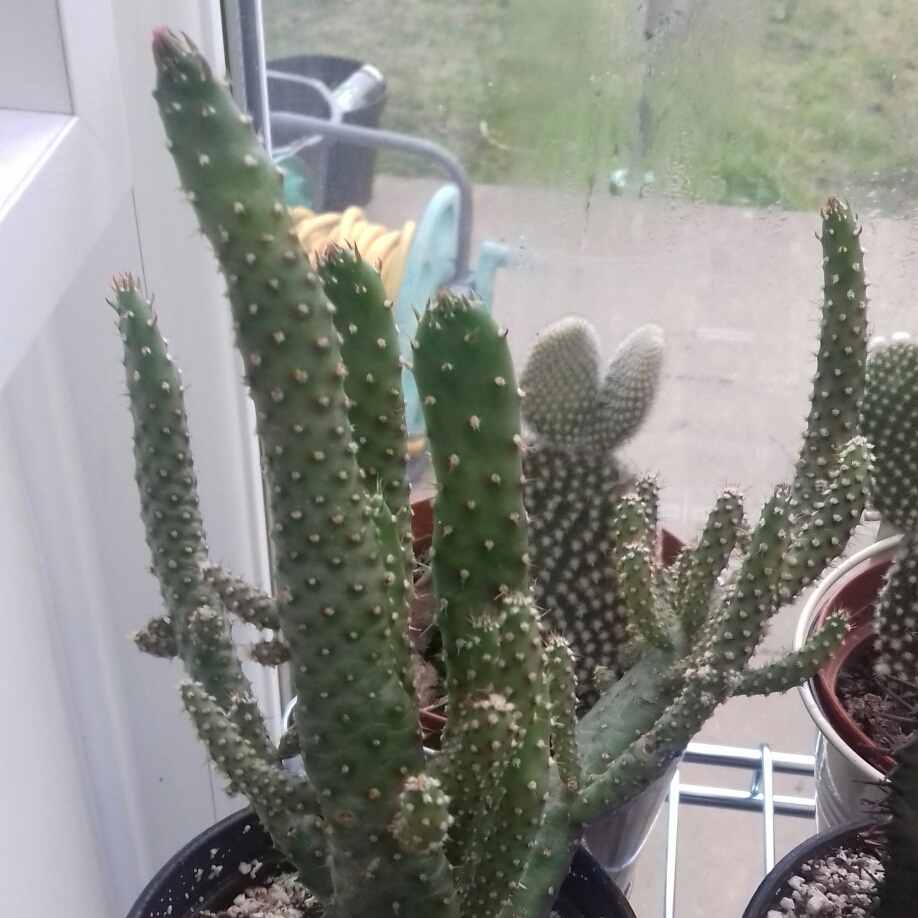
Cylindropuntia whipplei
Whipple cholla
Cylindropuntia whipplei is an upright shrub, 2m or more high, with many stems branching from a woody central trunk. Stems are bright green or sometimes purplish green, bearing distinct tubercles and clusters of yellowish spines which do not completely cover the stems. Cylindropuntia is a genus of cacti, native to northern Mexico and the Southwestern United States. They are known for their barbed spines that have a nasty habit of attaching themselves to skin, fur, and clothing!
-
Full sun to partial shade
-
Very little water
-
A little frost hardy: 32F (0°C)
-
Light and free draining
Common name
Whipple cholla
Latin name
Cylindropuntia whipplei
type
Succulent
family
Cactaceae
ph
5.0 - 7.0 Acid - Neutral
Plant & bloom calendar
-
Best time to plant
full grown dimensions
 1.50 M
2.00 M
1.50 M
2.00 M
Cylindropuntia whipplei
Cylindropuntia whipplei is an upright shrub, 2m or more high, with many stems branching from a woody central trunk. Stems are bright green or sometimes purplish green, bearing distinct tubercles and clusters of yellowish spines which do not completely cover the stems. Cylindropuntia is a genus of cacti, native to northern Mexico and the Southwestern United States. They are known for their barbed spines that have a nasty habit of attaching themselves to skin, fur, and clothing!
Planting young plants
From Early Spring TO Mid Summer
Dig holes or beds wide, not deep. Gently remove plants from containers, keeping the root ball intact and plant level with the surrounding soil, spreading the roots outward. Back fill around the roots with native soil then water to settle the soil around the roots. Stake large plants to prevent excess movement in strong winds.
Propagation
From Early Spring TO Early Spring
Most cacti and succulents can be propagated by small stem cuttings that are allowed to dry out for a few days or weeks before replanting in slightly moist, well-drained potting soil.












